Pursuit of Play, vol. 2: The Debut

This month we’re kicking off the 2025 Pokemon season with a return to the scene of the crime: the Dortmund, Germany Regional Championship where oldest Trudeau child Thomas was crowned last year’s champion. Needless to say, the kids are right back where they belong, but me? I’m a noob, a minnow swimming in a pool of sharks.
This is Pursuit of Play, an exploration of the role and value of play through the lens of the European Pokemon circuit. Previous editions can be found here.
I think you should read: The Inner Game of Tennis
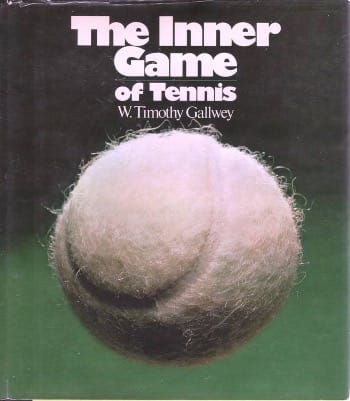
OK, I don’t intend to start these write ups off with my media recommendations, but The Inner Game of Tennis colored the experience of this first tournament so much for me that I’m going to be referring to it both directly and obliquely throughout. If you’re thinking, “I don’t play tennis” - well, me too! And that does mean that there’s a significant amount of this book that you might just skim through very quickly, but the book isn’t about tennis; it’s about reaching a state of flow that allows you to learn & grow, to find meaning. It’s about how to defuse every pressure cooker situation. It’s about the internal dialogue between our critically aware and intuitive selves. And it’s about the games we play and why we play them.
Sidenote: have you heard about the Star Wars Machete Order? It’s a way of reordering the original and the prequel trilogy to give them better narrative sense across the 6 films[1]. I think The Inner Game of Tennis benefits from a machete order in how you read it. There’s just so much of the middle that is very, well, tennis-centric and so much of the last quarter that is broadly applicable. So, the order to read it in goes like this:
- The discovery of the two selves
- Quieting Self 1
- Trusting Self 2
- Games People Play on the Court
- The Meaning of Competition
- Concentration: Learning to focus
- The Inner Game off the court
- …and then maybe read Discovering Technique and Changing Habits if you’re a real completionist.
OK, with that out of the way let’s get into the Outer Game of Pokemon!
The Pokemon Update
This is the part of the newsletter where we get into the nitty gritty details of our latest Pokemon regional tournament. I’ll break down:
- What we’re playing - which deck did we each bring & why?
- Some color commentary
- How we did - records, standings, the pain & the glory
What we’re playing:
- Tommy was sticking with their Raging Bolt deck from the World Championship. It can attach a lot of energy per turn thanks to its Teal Mask Ogerpons EX, and it can hit an opponent for 60HP for every attached energy it discards…so it can one shot anything in the format and get some absolutely devastating early game knockouts.

- Nate brought the Dragapult EX deck[2], which hits the active Pokemon for 200 HP of damage and then spreads 60 more points of damage to Pokemon on the bench. It can both wreak havoc early and soften up the bench before going off for some big turns where it knocks out 2 or even 3 Pokemon in one go.
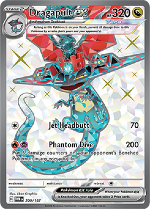
- I built my own deck based on Tsareena EX and Pigeot EX. Tsareena can hit any Pokemon on the board down to 30 HP, and I can attach a tool called a Panic Mask that means it can’t be attacked by any Pokemon with 40 or fewer HP remaining. This deck is a slow burn that is made for the late game; it can fall behind on the prize trade, and then it can take all 6 prizes in a single stunning turn…when it works, that is.
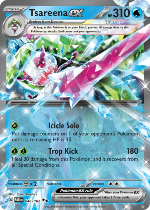
The color commentary:
How would you like a bit of a Greek tragedy in miniature? A story of hubris leading to complacency, and ultimately…defeat… Alright, fine. Here it is:
Heading into my 4th round at the Dortmund Regional Championship, I was sitting at a record of 1 win, 2 losses. The 2 losses were against 2 of my worst matchups, and I’d kept them competitive so it wasn’t the worst thing in the world. I’m not expecting any sort of outstanding performance from myself, but with 2 losses it’s possible to harbor the illusion that if I just win everything else I’ll advance to the 2nd day of competition, and I matched against a player in his first regional tournament who had picked up the game a few months ago. He was playing a Dragapult deck, which I know because it’s the same core build that Nate was playing at this tournament.
He raced out to an early lead, but I wasn’t sweating it because my deck is designed to fall behind and make big, explosive comebacks[3].
So he went ahead while I worked on setting up my coup de grace, but he recognized my plan[4] and thwarted it. Nevermind, though, I had a backup plan in which I could prevent him from attacking me while taking 1 or 2 prizes a turn until I had the win. So that’s what I did for several turns in a row. Instead of playing any cards, I just drew a new card and made my attack.
I should have been tipped off that something was amiss because he didn’t just immediately concede. I should have noted that he occasionally asked me how many cards I had in my hand, but I dismissed it because I thought he was going to disrupt my hand and I didn’t need any more resources.
So as I sat waiting for the final turn in which I would take my final prize card and claim my second victory, living to fight for another round, he attached an energy to his active Pokemon and for the first time in half a dozen turns announced an attack…an attack that did 20 more damage for every card in my hand. It did exactly 200 points of damage, which was exactly what he needed to knock me out and take his final prize.
I lost. He was elated.
And you know what’s really weird? It was my favorite moment of the tournament. I was legitimately impressed with the move he made; I had backed him into a corner, and he found his way out. As Gallwey writes in the Inner Game of Tennis:
Winning is overcoming obstacles to reach a goal… Reaching the goal itself may not be as valuable as the experience that can come in making a supreme effort to overcome the obstacles involved. The process can be more rewarding than the victory itself. Once one recognizes the value of having difficult obstacles to overcome, it is a simple matter to see the true benefit that can be gained from competitive sports. In tennis who is it that provides a person with the obstacles he need in order to experience his highest limits? His opponent, of course! Then is your opponent a friend or an enemy? He is a friend to the extent that he does his best to make things difficult for you.
I ended up only playing 6 rounds, going 2-4, and withdrawing. Every single round had been fun, and every single round had gone into overtime, so I could feel my brain melting inside my head. I like to believe that I made things as hard for my opponents as they made it for me.
How we did:
Needless to say, for me this tournament was not a success in terms of results, but it was still encouraging: I can have fun playing this deck for a whole day, and with some tweaks to it and some more practice it can perform better. Real talk: the night after the tournament I dreamt about how to improve my deck and woke up at 5am unable to go back to sleep as I considered all of the changes I’d make and how they’d fare against the common meta decks. This is not a complaint.
As for the kids, I’m going to bury a long footnote about the updated format of Pokemon competitions[5], but suffice it to say: this year, these regional championships matter A LOT MORE than last year. It will be impossible to qualify for the World Championships without taking points from regional championships.
And the good news is that both of them scored points this time around. Tommy did it by the skin of their teeth, finishing 64th in a field where the top 64 players earned points. Nate finished 41st. Tommy was thrilled, this being their first tournament in a new - and more competitive - age division. Nate was lukewarm - mostly happy with his performance from match to match but really hoping for a better showing. 100 points on the board for both!
And he’ll get another chance as we return to Lille, France for our next tournament in October.
Reflections on Play
Last year on the flight home from the regional championship in Stuttgart, a masters player sitting in the row in front of us on the plane told the woman next to him that he had just spent the weekend playing a children’s card game.
This characterization is undeniably true.
At the same time, I find it funny to consider the difference in perception between Pokemon and Chess. If someone says they spent the weekend playing a chess tournament, most people would assume that they’re cerebral, disciplined, maybe a bit intense. Pokemon, though, seems frivolous and cute. Not serious at all. I know this because I was also this person at one time.
I’m not here to make an argument that one game is better than the other, but I am fascinated by the contrast and how the different mechanics of the two games lend themselves toward very different arcs of development.
The remarkable thing about chess is how fundamentally stable it is. The core rules and mechanics of the game have been the same for centuries now. A knight still moves the same way today as it did when Isaac Newton was playing…As a result, chess has a thick history that is comprehensible to the modern player, yet it still lends itself to near infinite variation.
And Pokemon is the opposite: it’s a game that has embedded change into its fundamental logic. We have only been playing for a few years, but there are cards in play now that do things that were almost unthinkable when we first started and cards that were in play then that are no longer playable now.
A few months ago I did a little experiment: I tried to build an AI tool that would generate novel Pokemon decks, thinking that it might provide a slight edge to come up with an unexpected rogue deck. This experiment was a dismal failure - in part because of the complexity of the game relative to something like chess[6] , but even more because of the nature of LLMs being trained on historical data and Pokemon being a game that renders its own history obsolete. Since then, I have spent a lot of time thinking about the technical feasibility of a Pokemon AI, and while I think it’s possible, the amount of compute needed is massive[7].

Another major point of difference: predictability is foundational to chess. All of the pieces are there from the very beginning, all of the possible moves that could be made are already present on the board. The element of luck is virtually nonexistent in chess[8]; everything your opponent could do is available to you, and vice versa.
Pokemon has a significant element of the unknown operating across multiple dynamics. There is the fog of war in not knowing the exact 60 cards that your opponent has in their deck, combined with the fog of not knowing what cards they are holding in hand at any given time. Beyond that, you don’t know what cards will be available to you at any given time.
These different dynamics & mechanics cultivate different mindsets and skills in the players. They also lend themselves to different approaches to how to gain competitive advantages. Lately, I’ve been thinking a lot about techs, technique, and technology.
- a tech is a small augmentation that a player makes to their capabilities in a game. These are most common in videogames where an item can be held to gain some sort of additional benefit. Techs are all over the place in Pokemon - players build their decks with all of these potential augmentations that they can deploy depending on the matchup. As an example, I have teched my deck with a kind of energy that prevents the effects of my opponent’s attacks…I don’t need it in every matchup, but it’s critical in some of them. But I don’t think techs are exclusive to video games. Athletes putting black under their eyes to reduce eye strain from the sun, goalkeepers who have water bottles with their opponents free kick tendencies written on them…these are techs.
- technique is how a player carries out some aspect of gameplay. It has a dual meaning really - sometimes it’s the refinement of a known mechanic (ie, someone’s shooting technique), but sometimes it’s the creation of a new way of doing something. For games like chess & Pokemon, the former definition is inconsequential to the game - there’s no benefit to how you move your pieces or play your cards - whereas it’s very important in physical games. But in all types of games, the latter definition can lead to huge competitive advantage if a player or a team finds a new and unexpected way to carry something out.
- Technology is, you know, technology. It’s improving some material aspect of the game. There is some incredible diversity in all of the different ways that technology can change a game - like how in chess the introduction of different AI engines revealed new playing techniques that the classical style of the game had never developed. But also how online gameplay made it dramatically easier for the best players to play against each other. But also how cameras allow line judges to call out of bounds more accurately in tennis.
And of course, these are not mutually exclusive classifications. Those Nike shoes that Eliud Kipchoge wore in his sub-2 hour marathon were a technologically driven tech that enabled an improved technique.
Our games and the way we participate in play is always evolving, even if we’re doing something that our prehistoric ancestors did, even if we’re playing a game that follows the same rules as it did centuries ago. The familiar coexists with the novel.
Next month, I’m going to get into a bit on the different motivations for and different manifestations of play. I realize I’ve been living largely within the world of game & sport…but I want to look beyond that too.
I think you should hear: Legacy of Speed
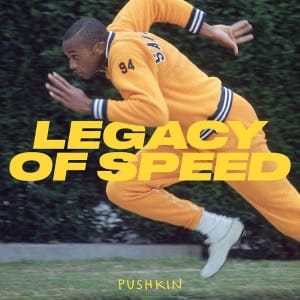
Yes, Malcolm Gladwell does have a new book out. No, you probably shouldn’t read it. Instead, listen to this podcast that he made. The first episode just pairs too perfectly with the Inner Game of Tennis. It’s all about how track coach Bud Winters developed a counterintuitive notion that people performed better in tense competition when they were in a state of relaxation. No grand laws of how society works in these 6 episodes, just a well reported story of the influence of one assuming track team on the larger sport…and the aftershocks it all caused.
- and to redeem the prequel trilogy
- a version of which, by the way, won the masters division of this tournament
- As a quick reminder, Pokemon TCG is basically a race to score 6 points by knocking out the other player’s Pokemon - most Pokemon are worth 1 point, some with higher hit points are worth 2 (And in the current meta there are a few tricks to take 3 and occasionally 4 points in one turn).
- most players don’t
- Two major changes they’ve made: the actual structure of the tournament is different for the Juniors and Seniors. Last year was 7 rounds on day 1 followed by a top 8 on day 2. This year, it’s 7 rounds on day 1, with everyone who scored 15 or more points advancing to play 2 more rounds on day 2 before proceeding to a top 8. Without getting too into the weeds, this allows for bigger tournament fields and makes ties much less valuable than they were last year. The second change is that they’ve significantly increased the points earned at regional tournaments while keeping the amount earned at local events the same and reducing the number of local events that a person can compete in from 6 down to 4. So gotta get those regional points!
- yes, seriously
- The in-game AI on the online Pokemon TCG Live is notably terrible.
- maybe aside from who goes first


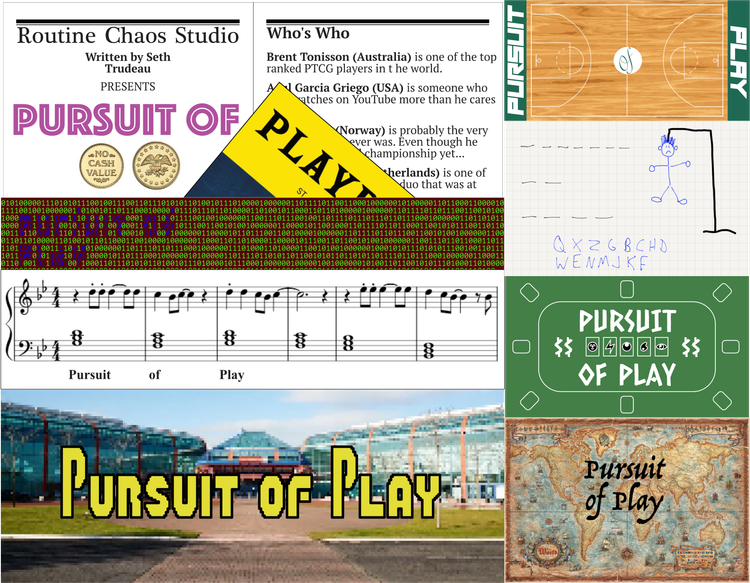

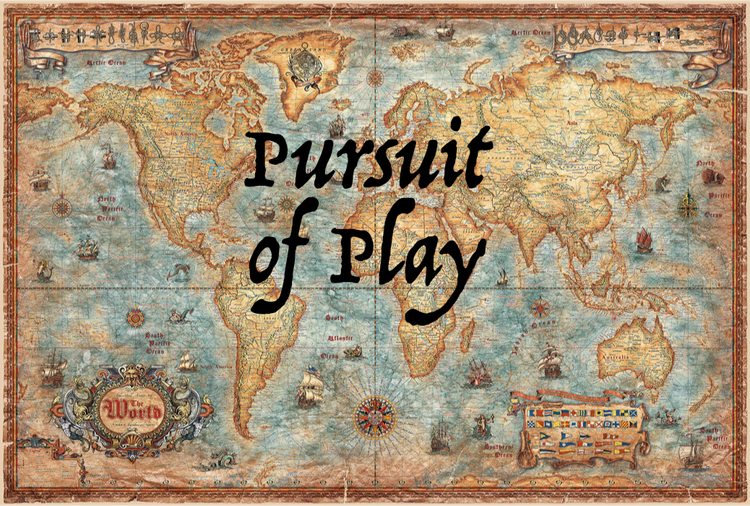
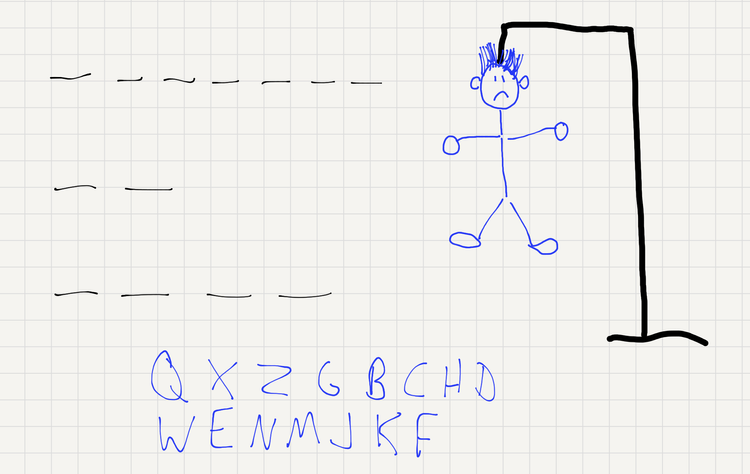
Member discussion